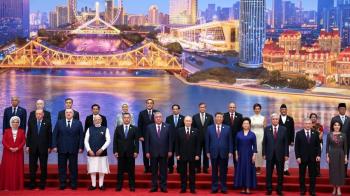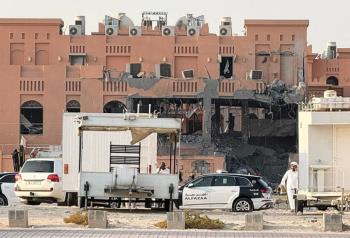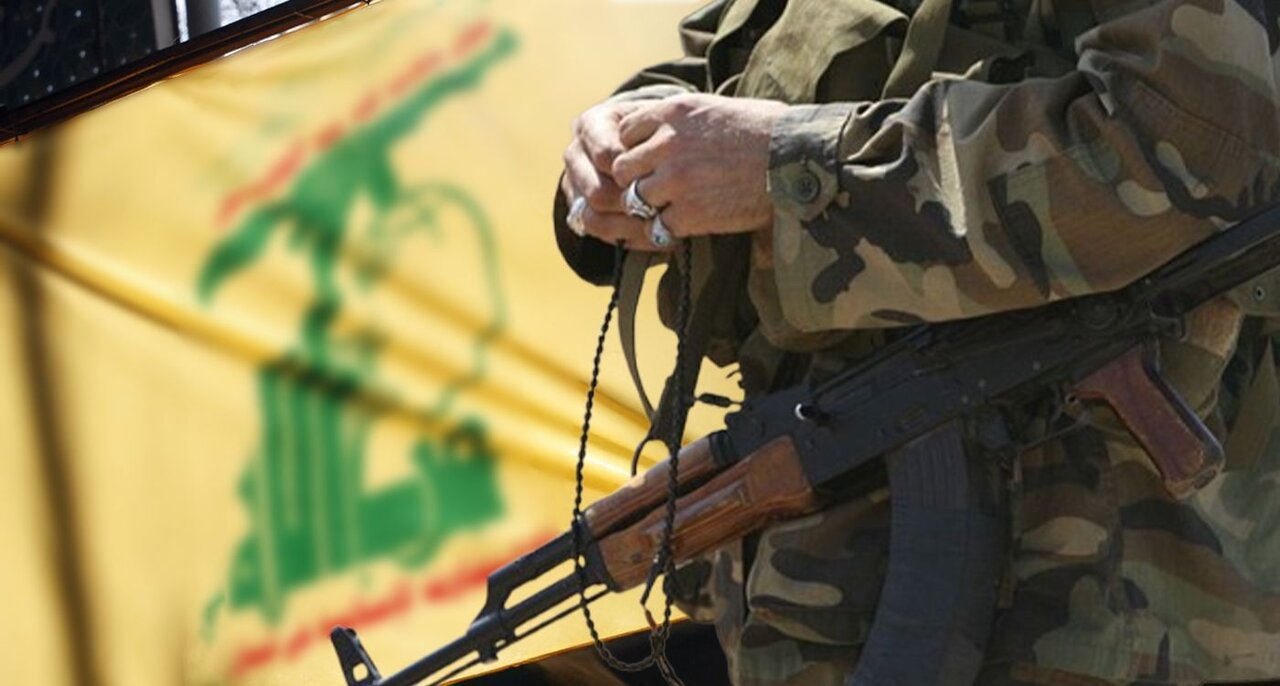Alwaght- As the US and other Western countries step up pressure on the Lebanese government to disarm Hezbollah, Andisheh Sazan-e-Nour Institute for Strategic Studies has held a meeting to discuss "prospects of disarming Hezbollah."
In this press meeting that was attended by international media and journalists, the director of the institute and the expert on West Asia affairs Dr. Saadullah Zaree shed light on the issue.
Why is Hezbollah disarming raised?
Mr Zaree said that the disarming of the Lebanese resistance movement was put forward after the heavy 66-day war. The reason behind start of war was the Israeli plan to eliminate Hezbollah as a power from the country’s political equations. But they failed to eliminate the movement. Actually, Hezbollah's military power and its capability to inflict heavy damages in the Israeli regions in extensive operations pushed the Israeli Prime Minister Benjamin Netanyahu to give his plan a second thought. He even said that Hezbollah "burned " to Israel with its attacks, so the war ended in a truce.
Of course, the Israelis did not adhere to their ceasefire promises and have continued the war in limited security and military operations against Lebanon, as evidenced by their military actions against southern Lebanon over the past two days. At the same time, the very acceptance of the ceasefire was an acknowledgment of Hezbollah's power. Consequently, following Israel's defeat in the military war against Hezbollah, the Israelis, on the strength of the American backing, brought another plan to the stage to contain Hezbollah. Thomas Barrack, acting as the US envoy to Lebanon, proposed a plan for Hezbollah's disarmament to the government of Lebanese Prime Minister Nawaf Salam.
What are the barriers to Hezbollah disarming?
Last month, the Salam government approved the US-presented disarmament plan in a cabinet session. It also tasked the army with working out a framework for disarming the movement within 20 days, by the end of August. Several days ago, however, the army's commander, General Rudolf Hinkel, handed the prime minister a letter stating that such a plan could not be implemented without meeting specific prerequisites. These include a full Israeli withdrawal from seven occupied positions in southern Lebanon and reliable security guarantees against further violations of Lebanese airspace and territory.
These conditions highlight the plan's impracticality. Given Israel's repeated breaches of Lebanese sovereignty, disarming Hezbollah appears highly unrealistic and fraught with difficulty. The issue is further complicated by Lebanon’s mosaic-like sectarian structure and its coalition government, which pose serious internal obstacles to disarmament. In effect, these very obstacles serve as a critical buffer, helping Hezbollah retain its arms as a deterrent against Zionist regime aggression.
Hezbollah's logic
Hezbollah is not very much worried about the pressures for disarming, since it has a clear logic for possessing weapons. The movement views its weapons as a legitimate and rational deterrent against Israeli aggression, a justification it consistently presents as both practical and reasonable. Meanwhile, some of Hezbollah's domestic political opponents are attempting to leverage the issue of disarmament to instigate internal strife, even risking civil war.
Hezbollah has declared that this internal turmoil is merely a pretext to exert pressure in service of the American-backed plan, and the party maintains it is fully vigilant in preventing civil conflict to ensure Lebanon does not descend into internal conflict. Lebanon has witnessed several episodes of internal tension in the past, including in 2008 when similar pressures for disarmament were applied and even insults were directed at images of Secretary-General Hassan Nasrallah. Even then, Hezbollah's calculated actions prevented the tensions from escalating into full-scale civil war.
Currently, Hezbollah continues to emphasize its logic for retaining its weapons against the encroachments of the Zionist regime. Lebanese President Joseph Aoun has himself acknowledged that the current disarmament plan is an initiative of the American envoy.
In essence, Hezbollah's position is clear: it has stated it will not accept the current disarmament plan because it is an American project. The movement has repeatedly stressed that several prerequisites must be met before any discussion of disarmament can occur within an internal Lebanese framework, free from foreign interference. First, the Lebanese army must be strong enough to defend the nation independently. Second, Israeli army, as an aggressor, must no longer be stationed threateningly along Lebanon's borders.
Plan already in failure
Barrack's plan for disarming of Hezbollah is certainly doomed to fail, and the Americans may be seeking other plans. Aoun has also stated in his positions that any move must be based on consensus, and a fundamental issue cannot be implemented against a specific ethnicity in Lebanon. Given the likely failure of the anti-Hezbollah plan, the US may seek a milder approach, pursuing disarmament within a more limited geographical scope or targeting only certain types of weapons. At the same time, because Hezbollah is currently engaged in some negotiations, it has temporarily shown self-restraint against the Israeli regime's aggressions. However, the principle of responding to aggression remains intact, and Secretary-General of Hezbollah Sheikh Naim Qassem also emphasized on July 5 that "we cannot tolerate this situation and abandon Lebanon's security [to the mercy of Israel].
Furthermore, the government of PM Salam may not have much time left. By late May of next year, Lebanon will hold parliamentary elections, making the dissolution of the current government following that vote highly probable.
Salam's initial appointment was achieved with the support of the Shia political bloc. However, it is far from certain that this bloc would be willing to nominate him again for the post after elections.
While the election outcome is unlikely to alter the fundamental weight and unified nature of the Shia community as a cohesive bloc—which consistently comprises the Amal and Hezbollah parties—it could significantly reshape the political landscape among Christian and Sunni factions.
Currently, the majority of Maronite Christian seats in parliament are held by the faction of Samir Geagea, the head of the Lebanese forces who is a staunch opponent of Hezbollah. However, the upcoming election could give Christian groups allied with Suleiman Frangieh, who are closer to Hezbollah, a stronger foothold in parliament. Similar realignments are conceivable within the Sunni bloc.
Therefore, with elections scheduled within the next eight months, Lebanon's political scene is likely to undergo a substantial shake-up. A newly constituted parliament could very well remove Hezbollah's disarmament from its agenda altogether, resulting in the complete failure of this Washington-presented plan.



























